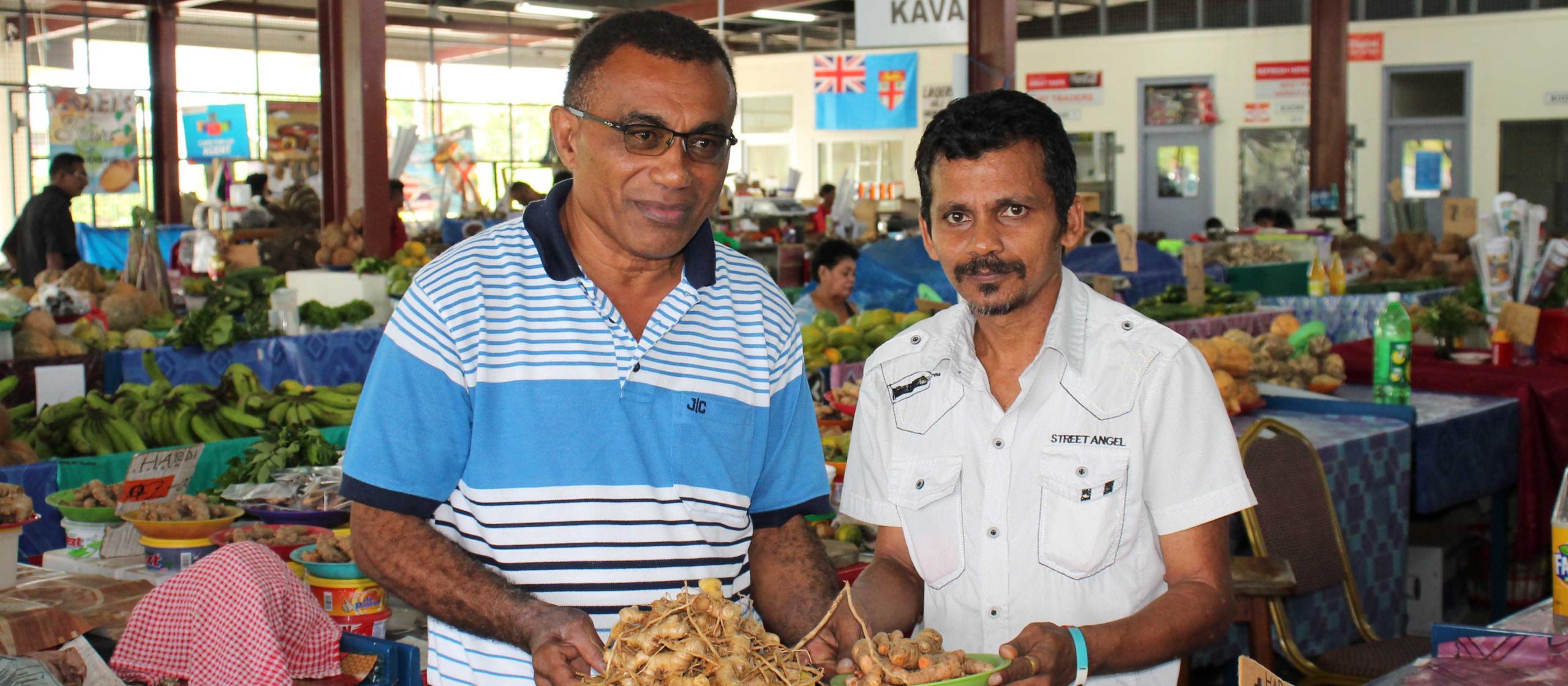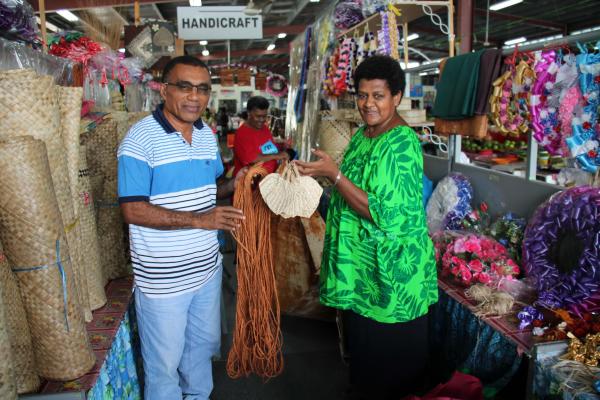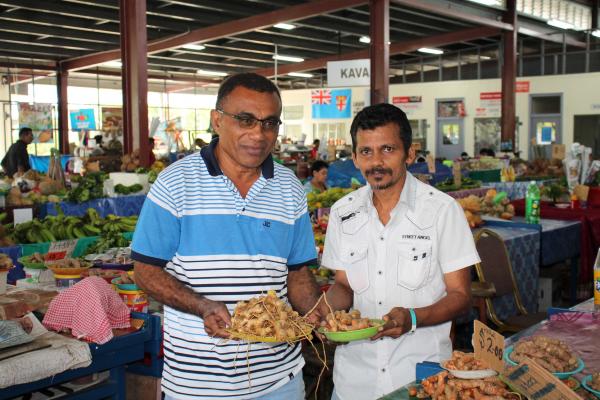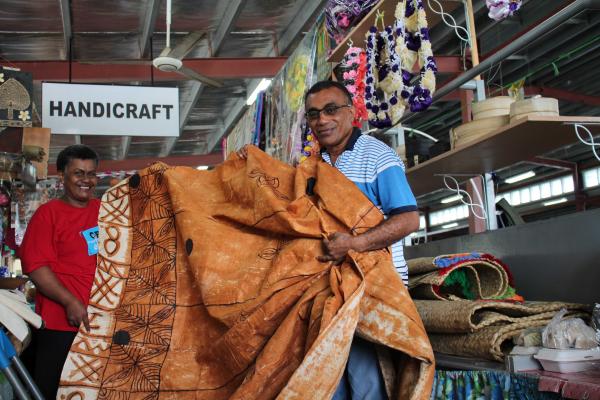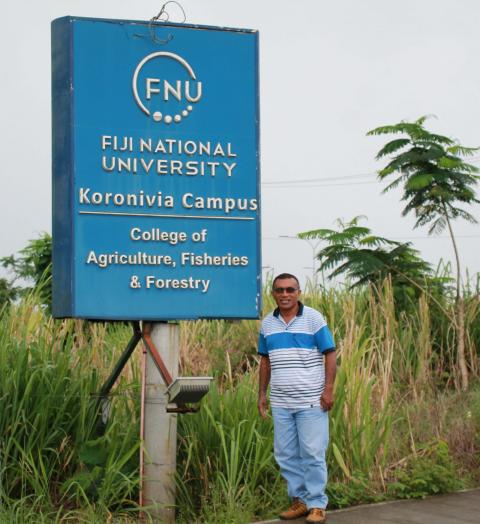- HomeHome
-
About ACIAR
- Our work
- Our people
-
Corporate information
- ACIAR Audit Committee
- Commission for International Agricultural Research
- Policy Advisory Council
- Agency reviews
- Executive remuneration disclosure
- Freedom of information (FOI)
- Gifts and benefits register
- Information publication scheme
- List of new agency files
- Contracts
- Legal services expenditure
- Privacy impact assessment register
- Commonwealth Child Safe Framework
- Benefits to Australia
- Careers
- 40 years of ACIAR
-
What we do
- Programs
- Cross-cutting areas
- Resources
- Where we work
-
Funding
- Research projects
- Fellowships
-
Scholarships
- John Allwright FellowshipScholarships to study in Australia for ACIAR partner country scientists to have Australian postgraduate qualifications
- ACIAR Pacific Agriculture Scholarships and Support and Climate Resilience Program
- Alumni Research Support Facility
- Publications
- News and Outreach
Date released
31 March 2021
During a career in forestry spanning 34 years, Maika Tabukovu has witnessed considerable change in the Fijian landscape. For one thing, native logging has been dramatically curtailed in response to global warming and environmental concerns. Forest conservation and biological diversity are now of growing importance to the Pacific island nation and its people.
But those same rich forests continue to sustain Fijian families in other ways during challenging times, as evidenced during the global COVID-19 pandemic.
When international borders closed, Fiji's main source of revenue - tourism (formerly accounting for about 38% of the country's GDP) - all but dried up. The collapse of a sector that supported over 118,000 jobs sent shock-waves through society.
However, Maika, a senior lecturer at the Fiji National University, believes the pandemic may provide fresh opportunities to diversify and strengthen the nation's economy. And forest resources are key.
Desperate to sustain their families during the COVID-led recession, many Fijians have been falling back on traditional enterprises as supplementary or primary sources of income. They've turned to the harvesting and sale of animal and plant non-timber forest products (NFTPs) like fruit and nuts, honey, horticultural crops (mango, cocoa and coffee), oil crops, spices, coconuts, vegetables, floriculture, medicinal plants and even bush meats (like pig, eel and freshwater prawns) to survive.
"Poor rural people are really suffering," Maika said. "They are going right up into the forest to harvest NFTPs, then selling these products at Saturday markets or street stalls to gain instant cash."
As the recipient of an ACIAR Alumni Research Support Facility (ARSF) grant, Maika aims to provide important baseline data, which his co-collaborator Tony Bartlett says is sadly lacking in Fiji. An experienced Australian forester, Dr Bartlett brings considerable experience as ACIAR's former Forestry Research Program Manager, and believes that better understanding what smallholders are harvesting and selling can only help to enhance the future use and processing of NFTPs.
"This could see the more entrepreneurial people taught how to add value and on-sell these products in a more commercial way and encourage larger entrepreneurs to take an interest in developing modern processing facilities," Dr Bartlett said. "But whether you're talking about outcomes for farmers, entrepreneurs or policy-makers, the bottom line is that better information is needed about the existing natural supplies, how much people are harvesting and where they are selling it and how much they are earning from NTFPs, which Maika's surveys will deliver. Only then can you ensure that all people in the value chain capture an equitable share of the benefits."
Maika, a former John Allwright Fellow, hopes his research findings will guide the sustainable development of emerging forest industries.
"NTFP harvesting is informal and unregulated; there are currently no controls or policies," he said. "Some of these products are vitally important culturally and environmentally, and they should be included in sustainable forest management plans. I want to understand what and how much NTFPs people are selling and where they are getting them from, but also how harvesting rates have changed overnight since COVID, due to financial hardship."
Through interviews at 14 municipal markets and conversations with forest owners and users, Maika hopes to identify the extent and sophistication of the supply chains for different products, including the harvesting methods used, logistics and processing.
"Things are really challenging in Fiji right now, so learning how we might improve the management of NFTP markets could help to improve peoples' earnings; it's something that might help," he said. "Fiji's forests have played a crucial role in our development for decades but demand for timber that was once highly valued locally and overseas has dropped substantially. It could be that NFTPs become a greater source of food and nutritional security as well as economic growth that helps to improve lives in light of the pandemic. This potential is certainly there."
Some products require little processing and are primarily sold locally (including ferns, for food), while others (like sago and medicinal products) require complex management and processing and are bound for national and international markets.
As well as identifying the different types of NFTPs that local communities are relying on, Maika will examine opportunities for women and the potential for more organised and regulated industries that could support livelihoods, sustainable trade and forest conservation.
It's a complex picture and Maika worries that unregulated harvesting could result in species extinctions.
"As demand for these products grows, so does the pressure on resources," he said. "We know very little about the ecology, use and management of even the most widely used NTFPs. Overharvesting is a concern, so I hope our research can contribute to environmentally sound management.
"We need to understand the importance of NTFPs as a form of income for Fijians who have lost their jobs due to COVID, as well as the potential to scale up these industries. If we can make recommendations to government on how they can be developed more fully, and it leads to something big, that would be great. I would not be surprised if some of the medicinal plants could cure diseases."
The Alumni Research Support Facility (ARSF) was announced by ACIAR in April 2020 as a swift response to the COVID-19 pandemic. The ARSF enables research projects that build resilience and respond to the challenges the pandemic has presented to agriculture systems in ACIAR partner countries. More than 38 ARSF research projects are now well under way.
Through the ARSF program, ACIAR has been able to continue investing in global research collaborations as well as scientific and policy capacity building activities in a way that directly addresses the challenges posed by the COVID-19 pandemic. The ARSF is delivering the knowledge and technologies that underpin more productive and sustainable agricultural systems and more resilient food systems, for the benefit of developing countries and Australia.
